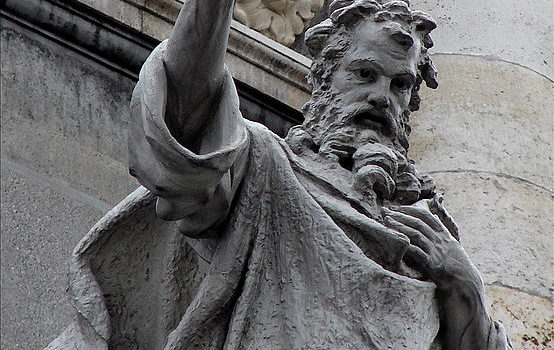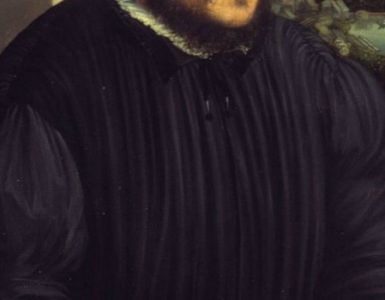St. Irenaeus (130?-202) was one of the most important theologians in the early Church. He was born in the city of Smyrna (in modern-day Turkey) and, as a youth, became a disciple of St. Polycarp. He went to Gaul (modern-day France) and, during the persecution of the Church by the Emperor Marcus Aurelius, became a priest in the city of Lyons.
After becoming Bishop of Lyons, Irenaeus was instrumental in leading the fight against the heresy of Gnosticism. The Gnostics claimed that only those who had secret knowledge, and who renounced all material things as evil (including the human body), could be saved. Irenaeus opposed them by developing the concept of apostolic succession (in which Church teaching is guaranteed to be authentic when Church leaders can trace their authority back to the Apostles), and by emphasizing the incarnational principle (which states that God’s creation is good, and that He can use physical or material items as a source of grace).
Though he vigorously opposed heresy, Irenaeus remained gentle and personally concerned for the spiritual well-being of his opponents. He is said to have been martyred during the persecution of the Emperor Septimus Severus, though details are unknown.
Lessons
1. As St. Irenaeus realized, submission to the legitimate authority of the Church is an important way of knowing the truth and conforming ourselves to God’s will.
2. According to Irenaeus, material and earthly things (money, power, authority, etc.) are not necessarily bad; they can be morally neutral, and even a source of blessing and grace when used for God’s glory.
3. Even as we oppose error by correcting those who practice it and limiting their power to promote it, we must remain personally concerned with our opponents’ spiritual well-being, seeking their conversion above all else, as St. Irenaeus did with the Gnostics of his day.
Other Saints We Remember Today
Vigil of Saints Peter and Paul
image: statue of Irenæus af Lyon by Carl Rohl Smith / photo by Orf3us, Public domain, via Wikimedia Commons










